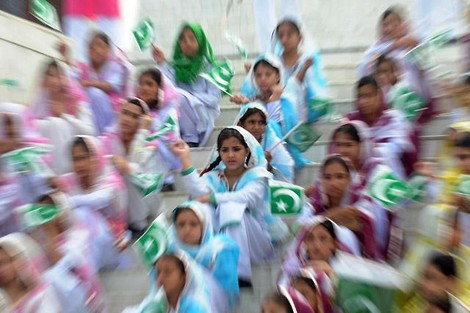Your podcast discovery platform
Curious minds select the most fascinating podcasts from around the world. Discover hand-piqd audio recommendations on your favorite topics.

piqer for: Climate and Environment Globalization and politics
Raksha Kumar is a multimedia journalist focusing on human rights, politics and social injustices. Since 2011, she has reported for The New York Times, BBC, Guardian, TIME, South China Morning Post, Foreign Policy, Scroll.in and The Hindu.
In March 2018, she was awarded the National Foundation for India Media Award for her reportage on land rights in India. In 2017, she was shortlisted for Kurt Schork Memorial Awards in International Journalism. For her work on land conflicts in India, she was awarded the Chameli Devi Award for Outstanding Media Personality in 2016.
As a reporter, her focus areas are land and forest rights of the most vulnerable communities. However, since these issues cannot be looked at in isolation, Raksha found herself increasingly reporting on armed conflict around resource extraction in places like Chhattisgarh and Kashmir.
In 2015, she wrote, shot and directed a documentary film on Rationalists in Contemporary India. It was aired by India's public broadcaster, Doordarshan. The film has been screened in 29 locations across the country until now.
The same year, Raksha was selected as a Chevening Fellow by the University of Westminster to research on Hindu Right in the UK. This helped Raksha build on her post graduate dissertation which was on Hindu Fundamentalists in India.
With a Fulbright Scholarship for Leadership Development, she went to the Columbia University in New York City to pursue a Masters in Science. As a student, she was offered the Scripps Howard Fellowship to report from Israel and the West Bank. Since 2011, Raksha has reported from 11 countries across the world.
Raksha worked as an editor at NDTV, leading English news channel in India. She was the editorial head of a two-hour prime time news show, where she lead a team of about 20 junior journalists.
A graduate of Lady Shri Ram College in New Delhi, Raksha was a dedicated student and a passionate public speaker.
The Country That Could Kill The World
"Political killers are rampaging in the streets of Karachi, just to show off."
This is what a young Pakistani boy said to Christopher Lydon, before he landed in Pakistan.
This podcast is about Pakistan – the country, its origins and its immensely complex politics.
Among the contradictory truths that we Americans barely know about Pakistan are (1) that it’s a cultural powerhouse (in poetry, fiction, and especially music) in South Asia and beyond; (2) it’s been a resentful and prickly junior partner in our U.S.-sponsored proxy wars for 30-plus years — first (embracing terrorism) against the Soviets and later against the terrorist groups and ideologies we promoted; (3) the troubles of Pakistan can be (and in conversation often are) traced back before the Cold War and the Islamic revolution to the moment of birth in 1947.
Pakistan is the only nuclear power in the Islamic world, says Lydon. It is important to understand the country as it is also one of the only entry-points into Afghanistan. The origin of Pakistan, a rather young nation, has its effect on the country's present day existence.
Speaking to many Pakistani intellectuals, leaders, tradesmen and people on the street, Lydon tries to draw an anthropological map of modern Pakistan.
